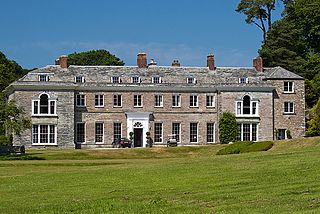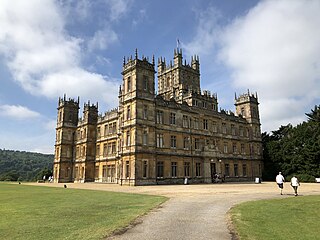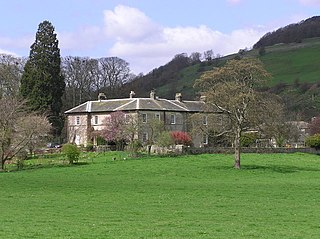
George Grenville was a British Whig statesman who rose to the position of Prime Minister of Great Britain. Grenville was born into an influential political family and first entered Parliament in 1741 as an MP for Buckingham. He emerged as one of Cobham's Cubs, a group of young members of Parliament associated with Lord Cobham.
Members of Parliament (MPs) sitting in the House of Commons in the United Kingdom are not permitted to resign their seats. To circumvent this prohibition, MPs who wish to step down are instead appointed to an "office of profit under the Crown", which disqualifies them from sitting in Parliament. For this purpose, a legal fiction is maintained where two unpaid offices are considered to be offices of profit: Steward and Bailiff of the Chiltern Hundreds, and Steward and Bailiff of the Manor of Northstead. Although the House of Commons Disqualification Act 1975 lists hundreds of offices that are disqualifying, no MP has lost their seat by being appointed to an actual office since 1981, when Thomas Williams became a judge.
Aldborough was a parliamentary borough located in the West Riding of Yorkshire, abolished in the Great Reform Act of 1832.

Thomas Pitt, of Boconnoc, Cornwall, was a British landowner and politician who sat in the House of Commons between 1727 and 1761. He was Lord Warden of the Stannaries from 1742 to 1751.
Wareham was a parliamentary borough in Dorset, which elected two Members of Parliament (MPs) to the House of Commons from 1302 until 1832, and then one member from 1832 until 1885, when the borough was abolished.
General Sir William Augustus Pitt KB, PC was a long-serving if undistinguished senior officer of the British Army whose sixty years of service covered several major wars and numerous postings as garrison or regiment commander. He served as MP between 1754 and 1761. He came from a notable political family: his father was also an MP and his elder brother George Pitt became Baron Rivers.

George Pitt, 1st Baron Rivers was an English diplomat and politician.

John Calcraft the Elder, of Rempstone in Dorset and Ingress in Kent, was an English army agent and politician.
Denis Bond (1676–1747), of Creech Grange, Dorset, was English lawyer and Whig politician who sat in the House of Commons between 1709 and 1732, when he was expelled for financial misconduct.
Sir John Wynn, 2nd Baronet, of Glynllifon and Bodvean, Caernarvonshire and Melai, Denbighshire was a Welsh politician who sat in the House of Commons between 1740 and 1768.

John Bond was a British barrister and politician.

Sir George Hay was a British judge and politician who sat in the House of Commons between 1754 and 1778. He committed suicide.

Sir Kenrick Clayton, 2nd Baronet of Marden Park, Surrey, was an English politician who sat in the House of Commons of Great Britain from 1734 to 1769.
John Jolliffe was an English politician. He established his family's political control of the pocket borough of borough of Petersfield in Hampshire, and sat for the town in the House of Commons for a total of 30 years.

William Morton Pitt, FRS was a British Member of Parliament.
John Tucker was a British politician who sat in the House of Commons between 1735 and 1778.

Robert Sawyer Herbert of Highclere Castle, Hampshire, was a British politician who sat in the House of Commons for 46 years from 1722 to 1768.
George Pitt, of Strathfield Saye, Hampshire, was a British landowner and Tory politician who sat in the House of Commons between 1694 and 1727.

Henry Drax of Ellerton Abbey, Yorkshire and Charborough, near Wareham, Dorset was a British Whig politician who sat in the House of Commons between 1718 and 1755.












